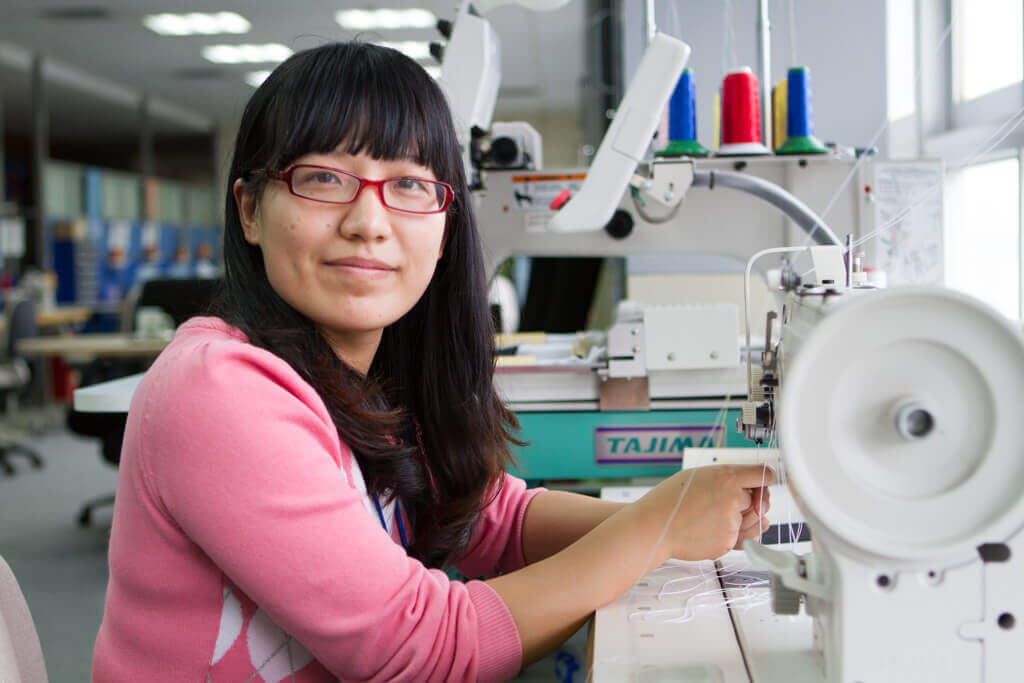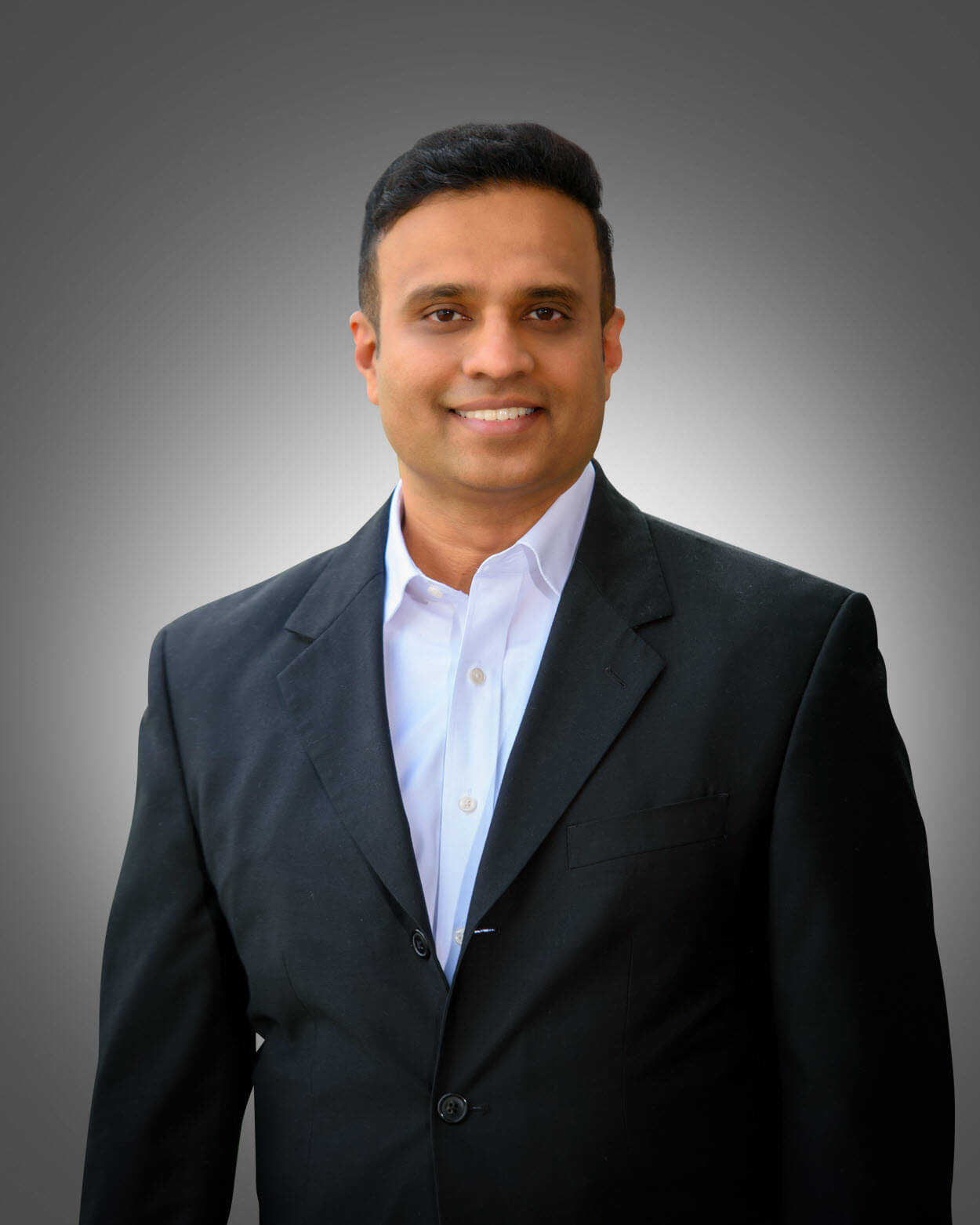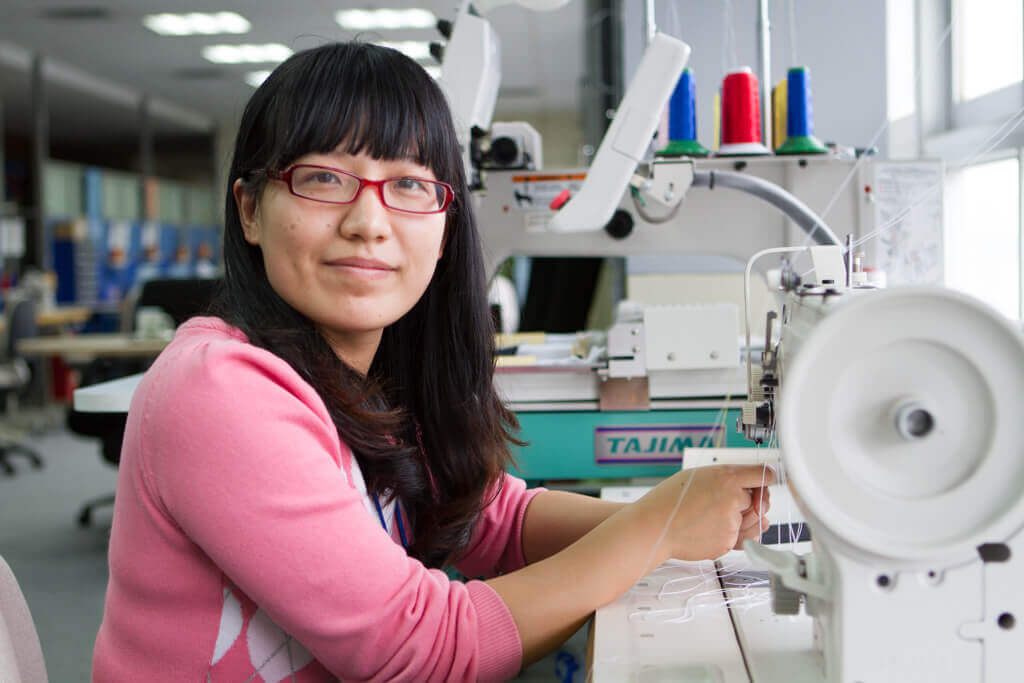
Coats improves connectivity in China with networking technology
By Madelaine Thomas
Following multi-national thread company Coats’ move to Aryaka networking services – globally managed connectivity delivered as a service – Aryaka’s CPO Shashi Kiran talks to Madelaine Cornforth about the partnership and the importance of an integrated and secure global networking solution.
Aryaka provides managed SD-WAN for global enterprises that delivers significantly better performance for cloud and on-premises applications for enterprise data centres, factories, branch offices and remote/mobile employees anywhere in the world.
SD-WAN is an acronym for software-defined networking in a wide area network. It simplifies the management and operation of a wide area network (WAN) by decoupling the networking hardware from its control mechanism. Aryaka’s managed SD-WAN brings together a global network with the software and technology stack to make this highly differentiated, the company says.
Unlike legacy network technology such as MPLS, which takes months to deploy, Aryaka’s Global SD-WAN can be deployed within days. It is delivered as a service, so IT organisations can consume global networking services the way they would consume SaaS applications like Salesforce and infrastructure-as-service like Amazon Web Services (AWS) and Azure from Microsoft.
Aryaka says it is transforming how global enterprises connect sites and users worldwide and accelerate mission-critical applications to support modern business execution demands. Its 100% managed SD-WAN combines a purpose-built private network, end-to-end connectivity, optimisation and acceleration techniques, connectivity to cloud platforms, and network visibility in a single solution that is delivered as a service, the company says.
Using this service, Coats, which is headquartered in the UK and with 19,000 employees across 50 countries, has already achieved a 300% improvement in employee user experience since deploying Aryaka networking services. The company is addressing the challenges of connecting its locations in China to its European offices by replacing its legacy, underperforming MPLS solution with Aryaka’s global managed connectivity, delivered as a service.
Aryaka CPO Shashi Kiran says: “Aryaka helps customers as they progress through digital transformation. Coats is a customer that has a presence in six continents, and they have a number of different sites that were previously running technology called MPLS [Multiprotocol Label Switching Protocol].”
MPLS is a routing technique in telecommunications networks that directs data from one node to the next based on short path labels rather than long network addresses. This avoids complex routes for the router and speeds up traffic flow.
When Coats’ existing MPLS contracts came up for renewal, IT teams and executives at Coats agreed its existing MPLS solution was incapable of fully and reliably supporting new global applications such as Office 365, which is used by Coats across all of its worldwide sites. For this reason, they engaged in a conversation with Aryaka.
“Tania Sanchez, head of Global Architecture, Coats, says: “China is a critical region for us and we needed a solution that could guarantee user satisfaction when accessing our online tools. Aryaka was the only provider that was able to optimise and compress the traffic to our critical applications both in the cloud and on hosted datacentre providing a simple design and fully managed service.”
Kiran says: “Our technology is very simple. It’s something that they [Aryaka’s customers] don’t need to maintain themselves. They don’t need to worry about maintaining inventory, configuration, patching or updates. All they need to do is let us know what services, bandwidth and application performance each site requires. We take care of almost everything, including procurement and connectivity to the cloud, to the last mile or to the data centre.”
Aryaka’s business model is consumption-based, which Kiran explains is “very aligned with businesses that are cloud-focused” as it allows them to focus on their core business but bring in providers, such as Aryaka, to look at initiatives that are not core to their own business-line.
“Our goal is to make this wide area network as easy to consume as you would water or electricity in your homes and that is the goal here and the intent behind a lot of the digitisation efforts we see across our customers today,” Kiran says.
The partnership between the two companies began in 2018 with Aryaka being brought in to overcome the lack of reliability provided by existing MPLS technology. Aryaka’s global connectivity solution was given an inadvertent test run prior to the official project completion, when Coats’ MPLS network had performance issues in 2018. This saw all Coats’ network traffic automatically routed over Aryaka’s private, managed SD-WAN network with significantly improved performance compared to its legacy connections.
The project was completed in partnership with Aryaka’s local German partner and official Microsoft Cloud Solution Partner, GAB Enterprise IT Solutions, which introduced Aryaka’s solution to Coats and managed the communication between the two companies during implementation. Kiran says that GAB has been “instrumental in conveying the value proposition that Aryaka brings to the table.”
Bringing solutions
Looking at the manufacturing landscape today, Aryaka offers very different solutions. Kiran says: “Today the market landscape either consists of technology vendors who will provide an overlay technology stack including the Edge router and some software, or it comprises the telecom operators who own the underlying network and they provide the global connectivity. Aryaka is the only one today that provides a global network along with a fully developed technology stack, including our patented WAN optimisation technology and Edge routers. The way we connect to the cloud is a very different architecture and we offer all of this as a managed service.”
According to Kiran, prior to working with Aryaka, customers typically work with two to three other vendors to build a similar solution. “They either look at Aryaka as a single point of contact, which gives them a consumption-based model, or they have to deal with two to three other vendors,” he says. “At that point it becomes an easy decision for many of our customers,” he says.
This is mainly because other providers mostly only work locally or they partner with operators – “in that case the experience ends up suffering,” Kiran comments. In the case of Aryaka, however, the company brings an integrated solution which gives customers ‘a very elegant application experience’ and “the expertise that the company brings is something customers really like,” says Kiran. “The combination of all these things is really the reason why Coats chose Aryaka.”
This technology is vital for global manufacturing companies such as Coats. Kiran notes that this is true for all verticals and that Aryaka is seeing the development and adoption of this kind of technology across all industries. Coats, however, exemplifies the need for this technology because it has a ‘very distributed presence’, says Kiran, with hundreds of sites across six continents.
“When you are a leading global manufacturer you want to make sure that your different sites are all given the kind of fair treatment and preferences that they require,” says Kiran. “Today it is about collaboration, positivity, and making sure that no site is lagging behind from the kind of performance it deserves. They want to make sure that when they have such a global distributed footprint, they are not being short-changed by application performance issues or connectivity that is unavailable or substandard. That is the backbone on which their businesses are built today.”
Technology at the core
Investment in technology in the Fourth Industrial Revolution in escapable, but this should not distract companies from their core purpose but enable them to work more efficiently. In digital transformation, “no matter what domains the company focuses on, it is inherently becoming a technology company,” says Kiran, adding “that is the life blood of organisations today. It really enables them to focus on their core business better.
As a result of this, every company is a technology company, regardless of the vertical industry they are in, notes Kiran. “In today’s manufacturing landscape no one should be waiting for information, have poor application performance,” he says.
Technology has therefore become a significant differentiator for companies, including textile manufacturers, to accelerate their transformation efforts. This is especially true for low-margin, competitive industries like the textile industry. “Technology becomes a competitor differentiator,” says Kiran. “Our solution is really geared for them [customers] to take something and bring it into their ecosystem in as nondisruptive a manner as possible. We end up working with customers as well as our channel partners to make that happen.”
Companies like Coats, that have hundreds of facilities, manufacturing lines and logistical issues to think about, are a key beneficiary of this type of technology. Coats’ thread is used to create more than 450 million pairs of shoes and more than 100 million car airbags every year, as well as support specialist textiles and clothing for the medical, health, food production, and personal protection industries. Technology, therefore, is crucial for the organisation of such a huge company.
“Integration with the mission-critical applications we rely on every day keeps our business running smoothly, and Aryaka’s services ensure employees in China have the bandwidth, speed and stability they need to conduct business on a daily basis,” adds Sanchez.
China
With manufacturing being a huge part of its economy, the importance of this technology in a hub like China is easy to see. Yet manufacturing countries like this, such as Taiwan and India, can come with challenges. One of these challenges is being able to have predictable connectivity and application performance and the degree of local expertise there that is available to rectify something should anything go wrong.
“This is a universal problem that many companies have struggled with and it is a problem that Aryaka has solved,” says Kiran. As a result, Aryaka’s offering has become an attractive proposition in the region.
Kiran continues: “We have a global distributed Point of Presence and it covers 90-95% of the business population. It also allows us to activate a new site anywhere in the globe in a matter of a day or two. This typically takes most providers several weeks at times.”
Kiran adds that the company can do this in a secure way, while guaranteeing application performance. He says that doing this in countries like China, which is something others have struggled with and continue to struggle with, makes the company hugely successful. “That becomes a huge differentiator for us and for manufacturing companies particularly, today a lot of these applications are getting business critical data and information that has to be exchanged between sites,” he says. Security of this data and the readability of this data between sites and technologies is paramount.
“Companies are all investing considerably in technology and this technology is distributed,” says Kiran. “It could be across manufacturing plants in different countries and they all have latency requirements, they all have data requirements – to factor all of that in and to make it seem as if they’re all together is a challenge for most solution providers.”
Security
With all this valuable and classified data being collected and distributed between facilities, security is something that has to be an integral part of any technology solution and for Aryaka’s solution. Kiran says it is inherent.
He explains: “When we take care of connectivity – and one of the reasons they [Coats] chose us is [because] we can operate in a graceful manner across all of the different countries that Coats operates in and provide a very consistent experience – you need to do this in a secure way.
“Our transport itself is inherently secure,” says Kiran. “We end up encrypting traffic from [customers’] sites to what we call our Points of Presence and where Aryaka is highly differentiated is that we have a private backbone of our own. This is something that we have built across different continents and this is inherently secure as well. When we look at Edge, we also have a network Firewall and we partner with the likes of Zscaler, which is a key component of the solution.”
For example, Aryaka supported Coats in bringing its Singapore data centre online, an additional site to be connected to the global network. Aryaka also assisted the manufacturer with integrating Zscaler’s Cloud Security service to provide enterprise-grade firewall protection to cloud services. Last year, Aryaka announced a partnership to integrate Zscaler Cloud Security into its WAN platform.
“Compatibility is critical,” Sanchez says, “and Aryaka’s integrated security solution helped us seamlessly secure our networks, bringing the bandwidth to connect with cloud and cyber tools such as Azure and Zscaler.”
This critical work to Coats’ global network infrastructure signals completion of the first roll-out phase of new networking services which not only includes their Singapore location, but also offices in Hong Kong, Shenzhen, Shanghai, and the European data centre in Vienna.“Coats has a long, rich history that includes being the thread of choice for Thomas Edison in his experiments to invent the lightbulb and being appointed the official thread supplier to the Royal Shakespeare Company,” says Ian McEwan, senior vice president and general manager at Aryaka.
“There’s no reason companies with this longevity should be held back by legacy infrastructure incapable of supporting business objectives in the 21st century.
“We are proud to be the wide-area network of choice for Coats and helping them embark
on their digital transformation with a seamless global network delivered as a service.”
Kiran adds: “It’s been a very fruitful and productive partnership with Coats and we expect this relationship to continue to grow and make each other successful. We are honoured to be working with Coats because it has a very rich tradition and a historical legacy. The company has built up and nurtured that legacy as it continues to be a market leader in the textile manufacturing space. As a vendor of technology, it is very gratifying for us to work with companies that bring in such deep-rooted historical tradition.
“Coats is a pioneer in the textile industry and we like to think of ourselves as pioneers in the networking technology management and services sector.
“We hope that our contribution helps them to maintain their leadership and thrive long into the future.”
Have your say. Join the conversation and follow us on LinkedIn




